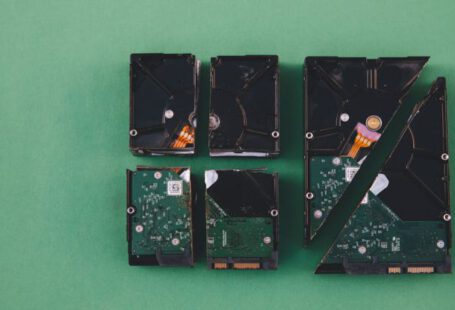When it comes to upgrading your PC, one component that often gets overlooked is the case. While it may not directly impact performance, the case plays a crucial role in housing your components, providing proper airflow, and giving your setup a visually appealing look. Before diving into the world of case upgrades, there are several key factors to consider to ensure you make the right choice for your needs.
Choosing the Right Form Factor
The first step in upgrading your PC case is determining the form factor that best suits your needs. Cases come in various sizes, from small Mini-ITX cases to larger Full Tower cases. Consider the size of your current components and any future upgrades you may want to make. Ensure that the case you choose can accommodate your motherboard, graphics card, CPU cooler, and storage devices without any compatibility issues.
Airflow and Cooling
Proper airflow is essential for keeping your components cool and running efficiently. When selecting a new case, pay attention to the available fan mounts, ventilation options, and cable management features. Look for cases with dust filters to prevent dust buildup, which can hinder airflow and lead to overheating. Additionally, consider the type of cooling solution you plan to use, whether it’s air cooling or liquid cooling, and choose a case that can accommodate your preferred setup.
Storage and Expansion
Another crucial factor to consider when upgrading your PC case is storage and expansion options. Ensure the case has enough drive bays to accommodate your storage needs, whether it’s traditional hard drives or modern SSDs. Additionally, consider any future expansion plans, such as adding more drives or upgrading to a larger graphics card. Look for cases with ample room for expansion and easy access to components for hassle-free upgrades.
Aesthetics and Build Quality
While functionality is key, aesthetics also play a significant role in choosing a PC case. Consider the design, color, and overall look of the case to ensure it complements your setup and personal style. Additionally, pay attention to the build quality of the case, including the materials used, construction, and overall durability. A well-built case not only looks great but also provides better protection for your components.
Ease of Installation and Cable Management
Upgrading your PC case should be a straightforward process, so look for a case that offers easy installation and cable management features. Cases with tool-less drive bays, removable panels, and plenty of cable routing options can make building and maintaining your system a breeze. Proper cable management not only improves airflow but also gives your setup a clean and professional look.
Budget and Value
Before making a decision, consider your budget and the value that the case provides. While there are cases available at various price points, it’s essential to find a balance between cost and features. Look for cases that offer the functionality and aesthetics you desire without breaking the bank. Additionally, consider any additional features such as RGB lighting, tempered glass panels, or integrated fan controllers that may enhance the overall value of the case.
In conclusion, upgrading your PC case is a decision that should not be taken lightly. Consider factors such as form factor, airflow, storage options, aesthetics, build quality, ease of installation, and budget before making a purchase. By carefully evaluating these aspects, you can ensure that your new case not only looks great but also provides the functionality and performance you need to take your PC setup to the next level.





